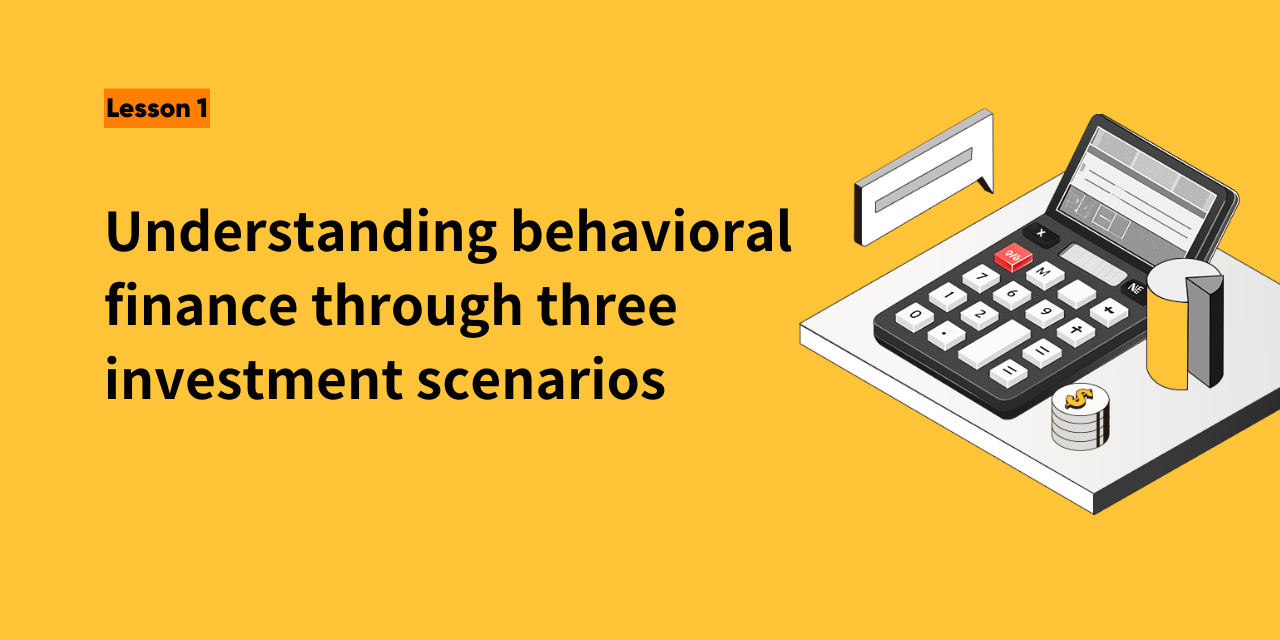Hello, Tigers!
In this issue, we will explore a fascinating course: "Behavioral Finance".
This course is captivating because it unravels many mysteries commonly encountered in investments: What is the mechanism behind financial markets? Why do certain trading strategies yield profits? How can one avoid investment mistakes? And how to overcome erroneous psychological and emotional tendencies? How to achieve stable returns?
In this class, I will vividly introduce to you what behavioral finance is through three lively trading scenarios.
1.Every time you buy a certain stock, it starts to fall, but when you sell it, it rises again?
Scenario 1:
Whenever you invest in a particular stock, it seems to start falling continuously. However, when you sell that stock or prepare to buy another, it begins to rise as if entering an upward cycle, constantly climbing. This leaves you feeling extremely frustrated, thinking it's just your luck.
But is it really just bad luck? In reality, you might be falling into the paradox of choice in investing.
The theory of the paradox of choice suggests that facing too many choices can be stressful. Psychologist Barry Schwartz pointed out in his book "The Paradox of Choice" that when people are confronted with too many options, they struggle to make wise decisions.
Simply put, when trading stocks, you might be focusing on too many of them, combined with sensitivity to price fluctuations, often concentrating on stocks with significant gains or losses.
In fact, you may not have noticed that among the stocks you want to buy, there are also those that continue to decline; it's just that you're putting all your energy into the ones that are performing well.
Therefore, in investing, it's advisable not to have too many choices, otherwise, you might fall into "choice paralysis" and easily second-guess yourself.
2.After buying stocks, do you stare at the market and individual stocks every day?
Scenario 2:
This is a scenario commonly encountered by novice investors: after buying stocks, they stare at the market and individual stocks every day, even paying close attention to every minor fluctuation.
Do you have such a trading habit? If so, you might be "overtrading"!
Beware, as overtrading is one of the major reasons individual investors incur losses.
Two scholars from the University of Chicago once conducted a famous experiment. They obtained trading data from 35,000 individual investors from a large brokerage firm in the United States and found through their research that the returns of individual investors were far below the market average.
To find out the reason, they sorted the investors by trading frequency each month into five groups. They found that regardless of trading frequency, the total returns of these investors were almost the same. However, frequent trading increases transaction costs, so the higher the trading frequency, the lower the net returns.
This statistical result reveals an important fact: one of the significant reasons for individual investors' losses may be trading too frequently. These two scholars' research demonstrated that it's better to hold steady instead of constantly watching the market and overtrading.
3.Why do confident people lose more?
Scenario 3:
The third investment scenario may be difficult to spot, which is overconfident trading.
Have you ever experienced this: feeling very confident when buying a certain stock, thinking you'll surely make a profit this time, but the outcome isn't so great?
If this situation occurs frequently, have you ever considered that you might be "overconfident" when investing in stocks?
Psychologists reveal that overconfidence in people is related to the accumulation of information. If someone knows nothing about stock investment, would they be confident? Probably not.
As they gather more information, such as through systematic learning of stock expertise, their abilities naturally improve, and confidence gradually strengthens.
However, it's important to note that there's no limit to the accumulation of information, but there is a limit to the improvement of abilities. After accumulating a certain amount of information, the marginal utility of ability enhancement will decrease, but your confidence may continue to grow.
At this point, overconfidence quietly creeps in.
For example, through careful research and analysis, you may believe you've seized an opportunity with a stock, but ultimately, that information may have no effect on the stock's price movement, or even result in some losses for yourself.
Therefore, overconfidence can lead to cognitive biases, causing decision-making errors in investments. To overcome excessive confidence, we not only need to see the "tip of the iceberg" but also delve into more detailed information, learn to diversify our trades, and never put all our eggs in one basket.
In the above content, these three trading scenarios respectively represent the "paradox of choice," "overtrading," and "overconfidence" in behavioral finance.
How about that? Do you feel like behavioral finance is constantly happening around us?
In fact, behavioral finance is a study exploring the "psychology of investment". Unlike traditional finance, behavioral finance has more practical significance. Through in-depth study, you can correct many cognitive and psychological misconceptions about investments.
In the next class, I will take you deeper into studying the "cognitive biases" in behavioral finance, letting you know what investment problems cognitive biases may bring.
See you in the next class~

